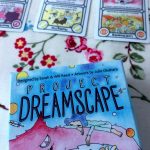
Telling stories
- Nelly
- August 2, 2024
- Board Games
Telling stories is a universal human experience that transcends cultural and linguistic boundaries. Whether it’s through written words, verbal storytelling, or visual media, sharing narratives has been an integral part of human communication for centuries. In the English language, storytelling plays a significant role in literature, film, theater, and even everyday conversations.
One of the key elements of storytelling in English is the ability to captivate an audience through engaging plotlines, well-developed characters, and descriptive language. English literature is rich with classic tales that have stood the test of time, such as Shakespeare’s plays, Jane Austen’s novels, and Charles Dickens’ stories. These works have shaped the way we tell stories in English and continue to inspire new generations of writers and storytellers.
In addition to traditional forms of storytelling, English speakers have also embraced modern mediums like film and television to convey narratives. From blockbuster movies to binge-worthy TV series, English-language storytelling has evolved to cater to diverse audiences around the world. The rise of online platforms like Netflix and Amazon Prime has also made it easier for storytellers to reach a global audience and share their stories with people from different cultural backgrounds.
Telling stories in English can also be a powerful tool for language learners. By immersing themselves in English literature, films, and TV shows, students can improve their language skills while enjoying captivating narratives. Reading books, watching movies, and listening to podcasts can help learners expand their vocabulary, improve their pronunciation, and gain a better understanding of English grammar and syntax.
Furthermore, storytelling in English can foster cross-cultural communication and understanding. By sharing stories that reflect different perspectives and experiences, we can bridge cultural divides and create empathy and connections with people from diverse backgrounds. Through storytelling, we can celebrate our differences, highlight our similarities, and ultimately build a more inclusive and interconnected world.
In conclusion, storytelling in English is a dynamic and versatile means of expression that allows us to share our experiences, emotions, and ideas with others. Whether it’s through literature, film, theater, or conversation, storytelling in English will continue to play a vital role in shaping our understanding of the world and connecting us with one another. So, the next time you have a story to tell, don’t hesitate to share it in English – you never know whose life you might touch with your words.




